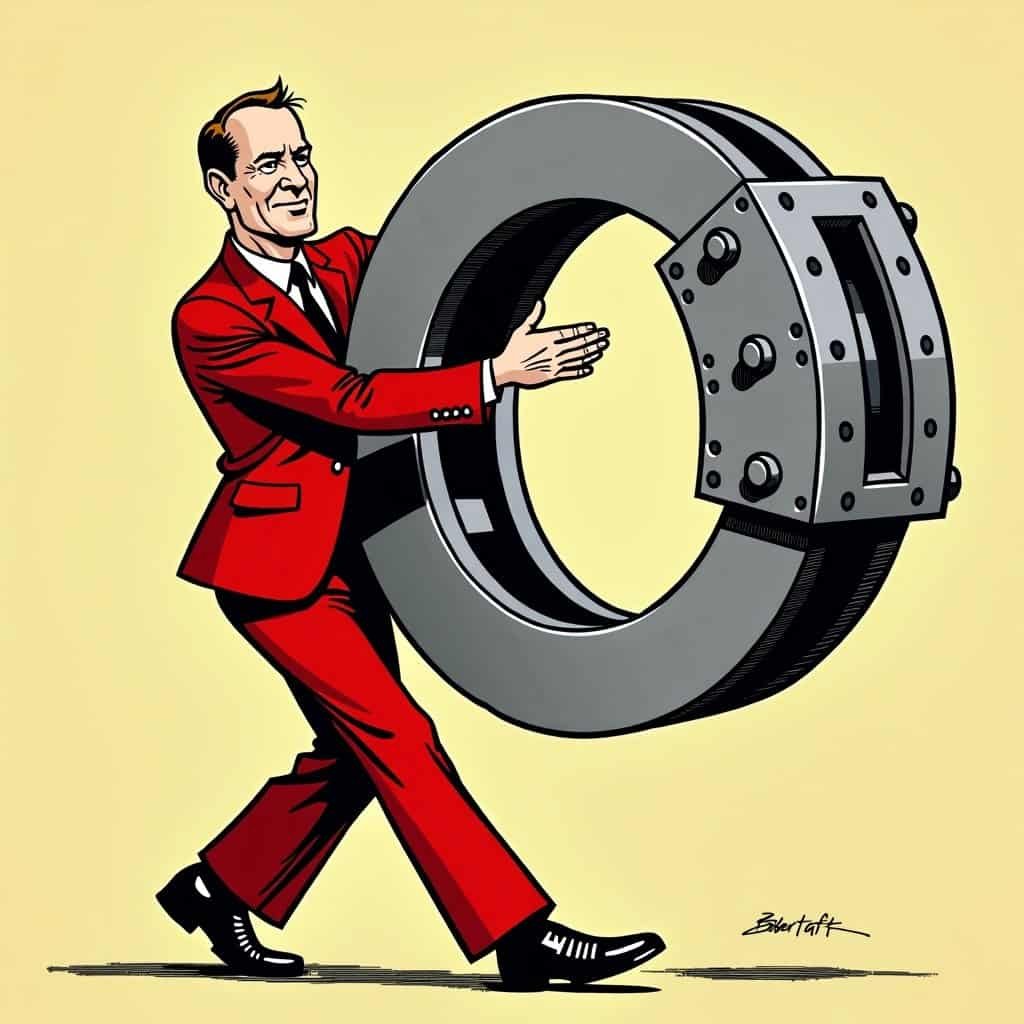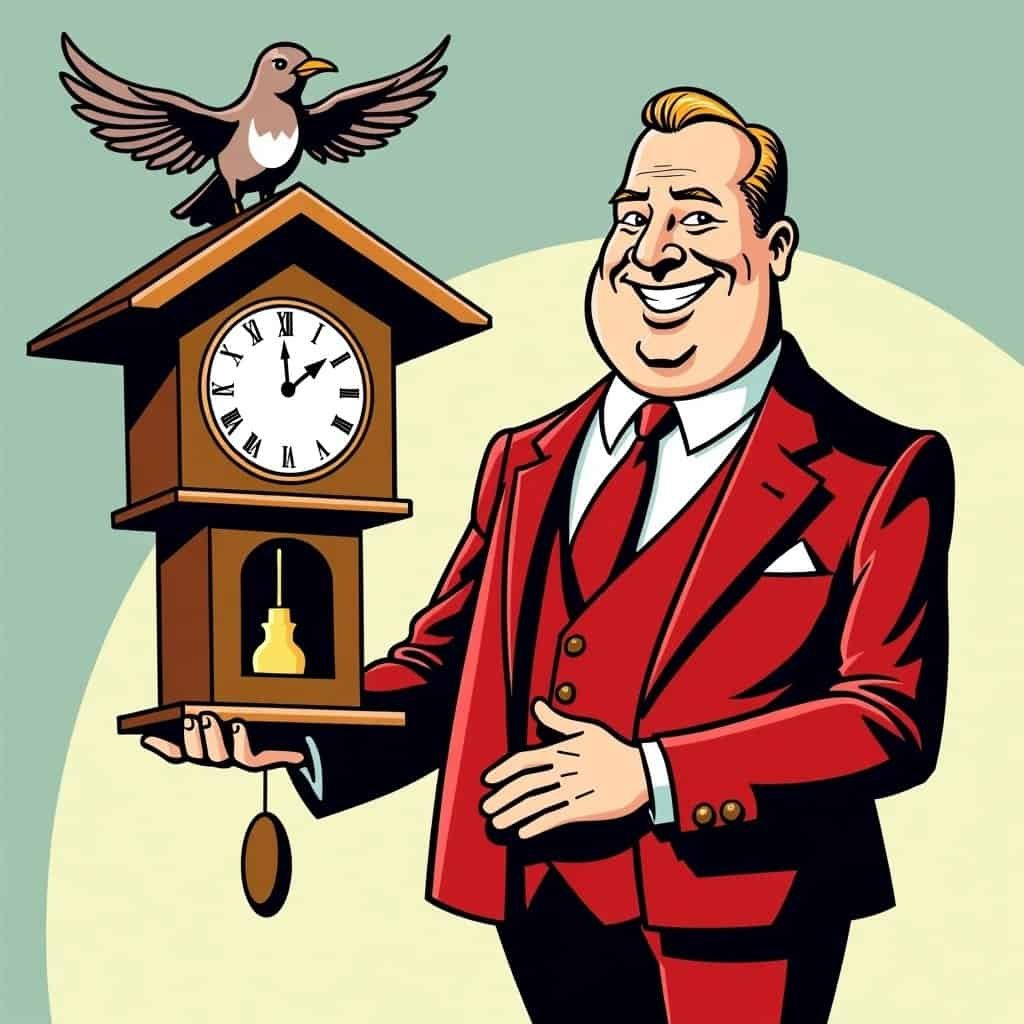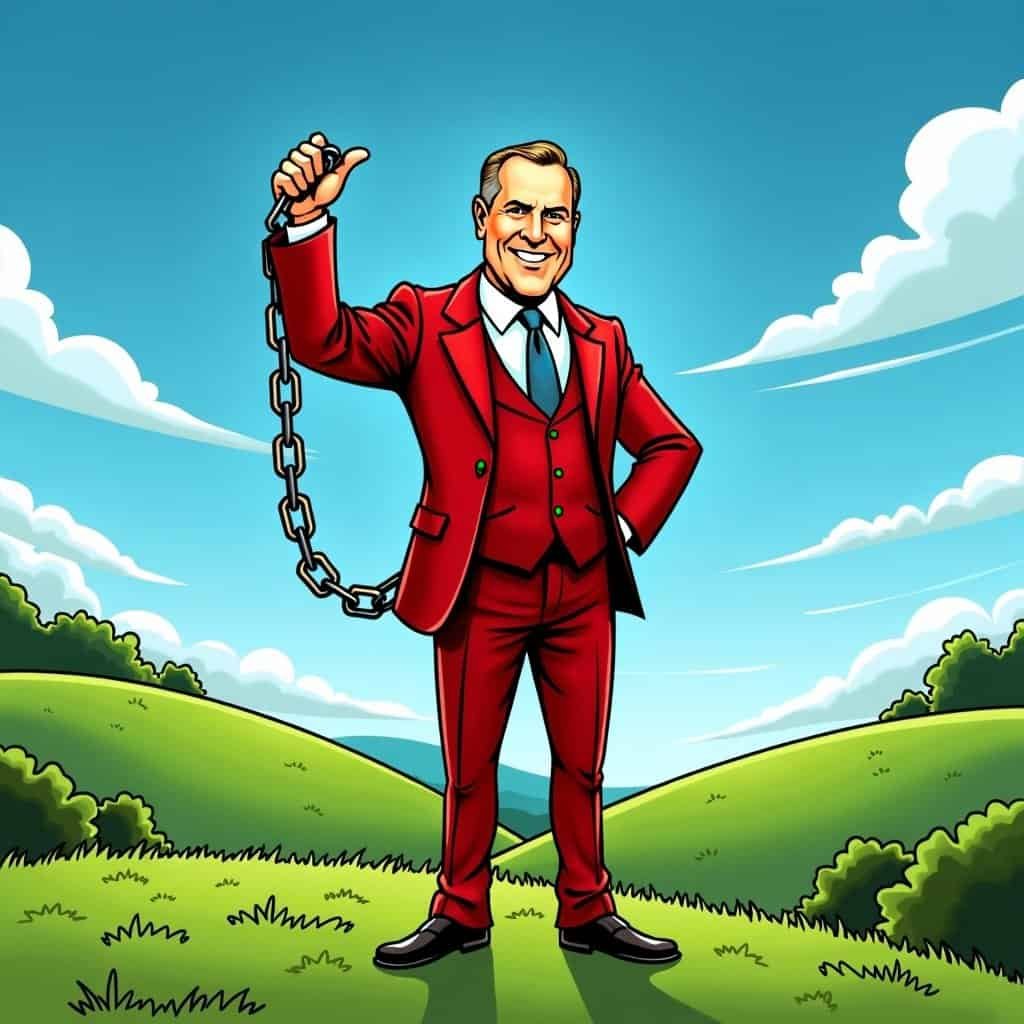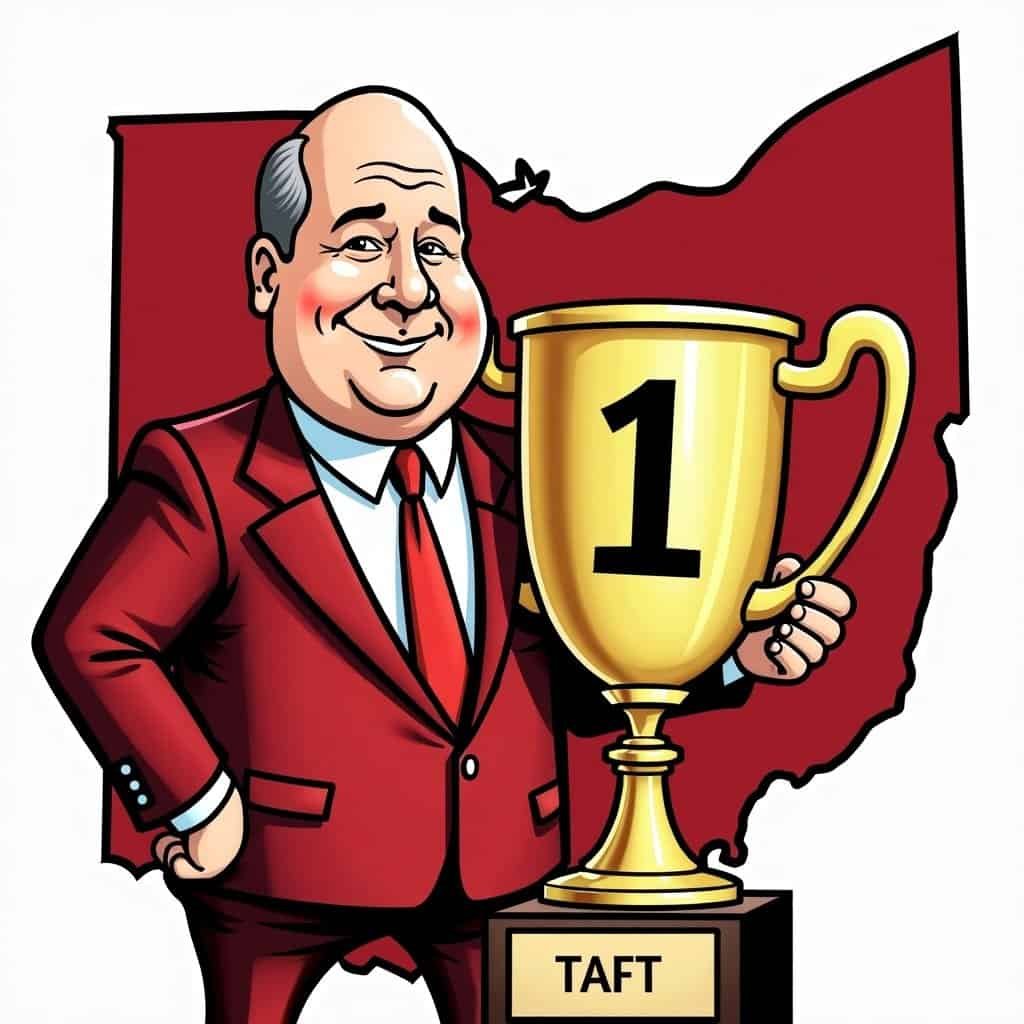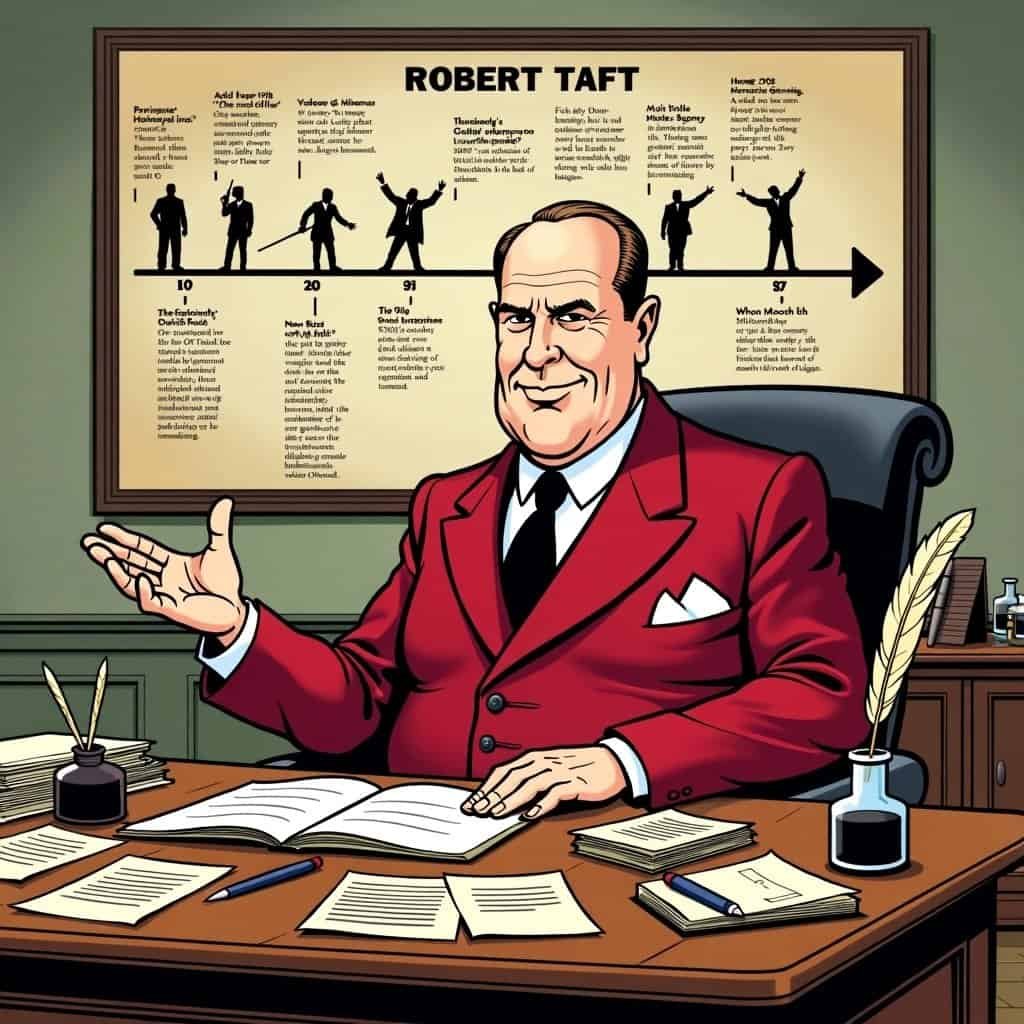Ah, the joys of post-war reconstruction! It was a time when every Democrat wanted to hand out funds like candy at a Halloween parade. But standing tall against this frenzy was, you guessed it, our very own Mr. Robert Taft. Known as ‘Mr. Conservative,’ Taft wasn’t exactly thrilled with the reconstruction policies championed by the Democrats. And who can blame him? When your solution to post-war recovery involves stacking debt like Jenga blocks, perhaps a little side-eye is warranted.
So what was Taft’s issue with these policies? For starters, we must tip our hats to his fierce love for fiscal responsibility. Picture sitting at a dinner table overflowing with government red tape and regulations, while your host rambles on about equality and justice! But who’s left holding the check at this grand feast? You got it…hardworking Americans!
Enter Taft, who basically said, “Pump the brakes!” His argument? Economic growth comes from trimming—not supersizing—government roles. His philosophy was driven by the wild idea that people would do just fine if they weren’t weighed down by excessive taxes and regulatory chains. Indeed, a refreshing approach, unless you find joy in bloated state budgets, of course.
The Law of Unintended Consequences
Now, let’s not forget the law of unintended consequences: those policies meant to create jobs and equal opportunities sometimes had a funny way of backfiring. It’s like trying to wrangle a wild bull only to find you’ve accidentally unleashed a stampede of fiscal burdens instead. Taft took aim at the big government approach, pointing out that taxes and spending projects sometimes created more cushy seats for paper-pushers than actual opportunities for regular folks. But, alas, the question remains: Who gets the milk when the cow belongs to everyone?
Taft’s Core Principles
- ✅ Minimal government interference
- ✅ Prosperity through individual effort
- ✅ Market forces as prime movers
- ✅ Less “Robin Hood” policies
- ✅ More individual empowerment
Robert Taft took great pride in pushing for less government meddling, believing with all his heart that success should come from personal elbow grease and that market forces should be the real drivers of society. Less playing “Robin Hood”—more giving folks the tools to build their own castles. Today’s conservatives would probably give a thumbs up to Taft’s forward-thinking penny-pinching. After all, why pile more on Uncle Sam’s plate than he can chew?
Now, the liberal/progressive alternative just tried to slap a band-aid on problems with policies which, in Taft’s eyes, would inevitably lead to economic sluggishness. And let’s face it, nothing screams ‘growth’ like trying to divvy up a pie that’s not getting any bigger.
Taft hammered home the importance of stability and warned against policies that might create a nation of couch potatoes—a notion that rings true for those who prefer pulling themselves up by their bootstraps over waiting for a government handout.
Taft’s Lasting Legacy
So here’s to Robert Taft, a man who preferred a cup of tea over diving into the swamp of bureaucracy, who found comfort not in whipping up quick fixes but in laying down principles that stood the test of time—a noble pursuit, indeed. In Taft’s critique, we find a reminder of the good old American way: let freedom ring, let markets do their thing, and let success bloom like dandelions on a freshly mowed lawn!

